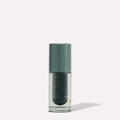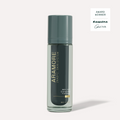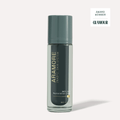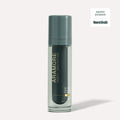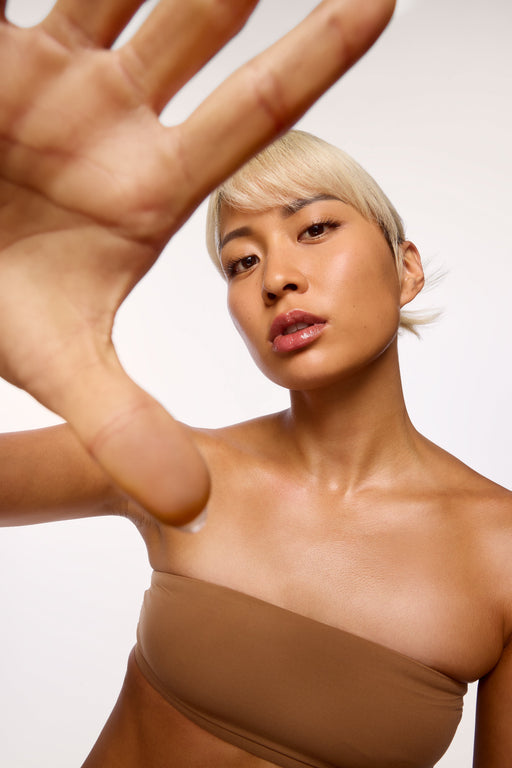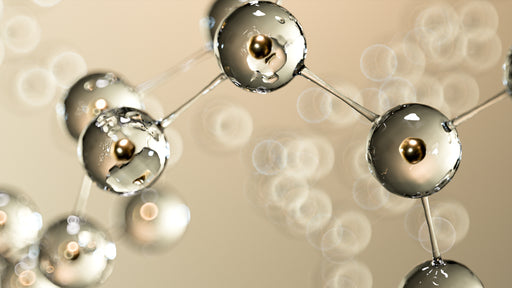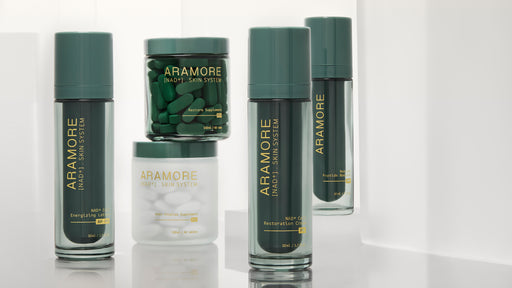Cold, Dry & Windy
Cold temperatures have been shown to negatively affect skin barrier function. An important function of our skin is to act as a barrier, both defending your insides from the outside environment and preventing the loss of water from inside to outside. This is known in the scientific community as transepidermal water loss (TEWL), and it isn’t just a fancy term for sweat. TEWL doesn’t involve the sweat glands at all and is essentially a measure of the skin’s ability to retain moisture. Excessive TEWL, combined with the low humidity typical of the cooler months, is a recipe for dry skin. Add high winds into the mix, whisking the moisture away from your skin, and things get even worse still.
Moisturizing daily using skincare products with the right ingredients can go a long way towards protecting you from all that cold, dry air blowing in your face. Ceramides help maintain the skin’s moisture barrier. Amino acids keep your skin hydrated by increasing the amount of water in your epidermis (the skin’s outermost layer). Hyaluronic acid improves moisture retention too. Deschampsia Antarctica aqueous extract (DAE) has been shown to greatly reduce TEWL, thereby improving skin hydration. Aramore’s skin creams contain all of these essential ingredients to help keep your skin moisturized even in the driest winter months.

If you normally have dry skin, you may be especially affected when summer changes suddenly into fall, and fall into winter. Your skin loves consistency and can have trouble keeping up with dramatic shifts in weather conditions. Going from humid conditions to dry ones is known to affect the skin barrier, and the more drastic the change, the drier—and more uncomfortable—the skin can get. For those suffering from very sensitive or dry skin, boosting your immune system may help. Ingredients like apigenin, blackberry extract, linoleic acid, melatonin, and rutin may be just right for the winter months. Aramore includes all of these ingredients in our supplements to help support your skin due to sudden changes in temperature and humidity. Discover our NAD+ Vitalize Supplement and experience the benefits of our nighttime Restore Supplement.
Hot, Humid & Sunny

For a lot of people, hot, sticky weather goes hand-in-hand with oily skin. High temperatures combined with high humidity can lead to you sweating more frequently, and an increase in sebum production—the oily substance produced by your skin’s sebaceous glands—causing things like breakouts and heat rash. Faced with these circumstances, exfoliation is a must, and ideally with a gentle liquid cleanser. You would think with all this moisture in the air, dry skin would be the last thing you have to worry about, but you have to be on the lookout for that too. When it’s 90° outside (and you’re not laying on the beach), no one could blame you for seeking the comfort of air-conditioning. Unfortunately, not only do AC units reduce the temperature, they also remove a lot of the moisture, leading to the low-humidity conditions we warned you about above. So if you spend a lot of time indoors over the summer, you’re probably going to want to moisturize.

Oh, but let’s not forget the sun for all the times you're outside. You don’t need us to tell you about the importance of protecting your skin from its harmful rays—or, at least, you shouldn’t. Humans have been guarding against the sun’s deleterious effects since 4000 BC, and the connection between sunlight and skin cancer, specifically, has been known since 1956. The sun produces two types of ultraviolet radiation that do damage to our skin, UVA and UVB (a third, UVC, gets filtered out by the Earth’s atmosphere). UVA rays have a longer wavelength and are mostly associated with premature aging and wrinkles, whereas UVB rays have a shorter wavelength and are associated with sunburns and skin cancer. But don’t be mistaken: UVA protection is not optional. Both UVA and UVB rays damage your skin cells’ DNA, and prolonged exposure to UVA rays has been linked to skin cancer too.
Thankfully, sunscreen has been around almost as long as tanning has been fashionable, and, as the science of skin care improves, sunscreen improves too. Our Multi-Defense Lotion SPF 30 broad spectrum (UVA/UVB) sunscreen lotion contains several different ingredients that work together to support skin exposed to sun exposure and environmental stressors. Micronized zinc has been demonstrated to defend against UVA and UVB rays. Uncover the potential of Aramores MultiI-Defense Lotion SPF 30.
UV levels, temperature, and humidity can all pose different problems for your skin. Even atmospheric pressure can have an effect: keratinocytes, the main kind of cell found in the epidermis and the skin’s first line of defense against infection, are excited by small changes in atmospheric pressure. The ingredients in Aramore’s products have been very deliberately chosen to help protect your skin from damage no matter what the weather is.


